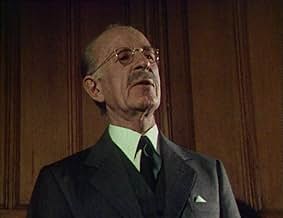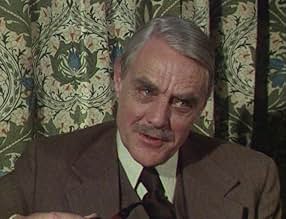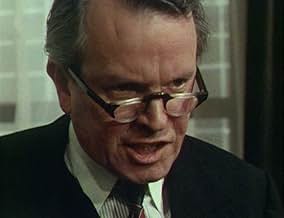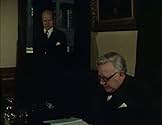Recruited by the Russians during their days at Cambridge, three young Englishmen rise to become high-ranked MI5 agents until their exposure in 1949.Recruited by the Russians during their days at Cambridge, three young Englishmen rise to become high-ranked MI5 agents until their exposure in 1949.Recruited by the Russians during their days at Cambridge, three young Englishmen rise to become high-ranked MI5 agents until their exposure in 1949.
- Nominated for 2 BAFTA Awards
- 2 nominations total
Oliver Ford Davies
- Geoffrey Patterson
- (as Oliver Ford-Davies)
Tony Sibbald
- Reporter
- (as Tony Sibbold)
- Director
- Writer
- All cast & crew
- Production, box office & more at IMDbPro
Storyline
Did you know
- TriviaThis television movie tells the true story of the "Cambridge spies", but there was something that the filmmakers did not know when it was made. There was a fourth Cambridge spy, the art historian Sir Anthony Blunt, who was publicly exposed two years after this movie was first televised.
- GoofsGC(&)CS Bletchley (Park) is in Buckinghamshire, not Surrey as narrated by Kim Philby's character as he reads a report.
- ConnectionsFeatured in Summershow: Philby, Burgess and MacLean (1980)
Featured review
I'm surprised there are no other comments about this TV movie even though it was made 30 years ago. The story, considerably expanded and updated, appeared in the mini-series "Cambridge Spies" in 2003, but this version was a powerful piece of television with plenty of drama and fine performances from Derek Jacobi as the flamboyant Guy Burgess, Anthony Bate as the close-mouthed Kim Philby and Michael Culver as the neurotic Mclean.
The key element is: why did these sons from "good" families go over to the Soviets in the 1930s and stay there? As Sir Steward Menzies head of MI6, here played by the imposing Richard Hurndall, says; "These chaps can't be spies, they are people like us." (In "Cambridge Spies" this remark is attributed to Lord Halifax, British Ambassador to Washington, who then commences a hunt through the embassy kitchens for the culprit.)
I think perhaps "Cambridge Spies", which covers Anthony Blunt as well provides a better explanation of this but in the earlier film director Gordon Flemyng captures the excitement of the events. To round out the story, viewers should also see John Schlesinger's little gem "An Englishman Abroad" (1983) where Coral Browne, the distinguished Australian-born actress re-enacts her encounter with Guy Burgess (wonderfully played by Alan Bates) in Moscow after his defection. Anthony Blunt was the subject of a play by Alan Bennett, subsequently filmed for TV as "A Question of Attribution", which contains an imagined conversation between HM the Queen and her erstwhile art curator cute, but not very informative.
The key element is: why did these sons from "good" families go over to the Soviets in the 1930s and stay there? As Sir Steward Menzies head of MI6, here played by the imposing Richard Hurndall, says; "These chaps can't be spies, they are people like us." (In "Cambridge Spies" this remark is attributed to Lord Halifax, British Ambassador to Washington, who then commences a hunt through the embassy kitchens for the culprit.)
I think perhaps "Cambridge Spies", which covers Anthony Blunt as well provides a better explanation of this but in the earlier film director Gordon Flemyng captures the excitement of the events. To round out the story, viewers should also see John Schlesinger's little gem "An Englishman Abroad" (1983) where Coral Browne, the distinguished Australian-born actress re-enacts her encounter with Guy Burgess (wonderfully played by Alan Bates) in Moscow after his defection. Anthony Blunt was the subject of a play by Alan Bennett, subsequently filmed for TV as "A Question of Attribution", which contains an imagined conversation between HM the Queen and her erstwhile art curator cute, but not very informative.
Details
- Release date
- Country of origin
- Language
- Also known as
- Espías para la historia
- Production company
- See more company credits at IMDbPro
Contribute to this page
Suggest an edit or add missing content





















